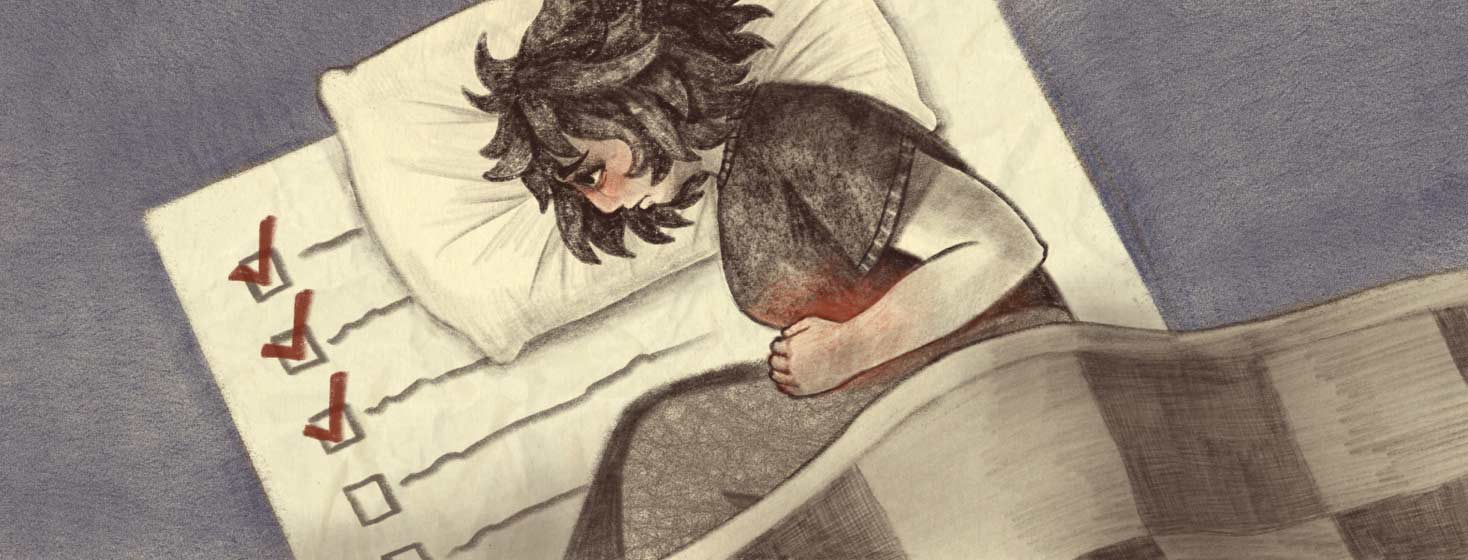How I Know When It’s Time to Go to the ER for Crohn's Disease
Unfortunately, if you have Crohn's disease, heading to the emergency room is something that can occur often. The nature of the disease brings many ups and downs. You have periods where you feel great and symptoms are manageable, but you also have moments where flares are constant and tend to increase in severity, calling for immediate medical attention.
Making the decision to go to the emergency room
Throughout my journey of advocating for Crohn's patients, I've found that for the most part, everyone has their own criteria for when to go to the emergency room. I've also found that most newly diagnosed patients are at a loss in knowing when they should seek emergency care.
So in lieu of this, I've decided to show my personal criteria on when I know it’s time to head to the ER in order to help others who are newly diagnosed, and to also just share with those who may call themselves veteran patients. Let’s take a look:
When should I go to the ER with Crohn's?
1. Severe dehydration
This has become a new criteria for me, simply because I didn't realize how quickly I dehydrate until my new GI suggested I go to the ER for IV fluids. This past spring and summer, I was in a terrible flare. It was constant.
I was always using the restroom constantly with diarrhea, vomiting, and awful cramping. I was exhausted all the time, and well, I didn't think much of it because that's usually how I feel when I flare.
Due to the pandemic, I had a Zoom appointment with my GI to discuss what to do. I felt trapped in this flare. Well, the moment the video began she took one look at me and said you are very dehydrated. I was pretty shocked. I said, "Really?" She urged me to go to the ER for IV fluids at the minimum.
Long story short, due to the pandemic being in full swing, I didn’t feel comfortable staying in the ER so I was able to get IV Fluids at a local private medical office near my house. After receiving the fluids, I felt brand new.
It was unreal how truly dehydrated I was and I had no idea. So now, if I feel the symptoms of dehydration, I consider going to the ER for fluids.
2. Overwhelming pain
This is the major factor for me personally. If I am in a flare where the pain becomes unbearable, I literally can't function. I can't eat. I can't get out of bed. I can barely drink.
This is when I know it is time for an ER visit. Pain meds and IV steroids are just necessary at this point for me to not be suffering horribly at home.
3. Excessive bleeding
There was once a flaring episode I had, in which I was bleeding a lot whenever I had a bowel movement. In this particular case, I was already fighting bad anemia and iron deficiency so I became concerned with all the blood I was losing.
I decided to head into the ER and I'm glad I did. I had to have a blood transfusion and iron transfusion to help get me feeling better.
4. Severe symptoms for over 12- 24 hours straight
Overall, if I am in a severe flare, meaning horrible abdominal cramping, bleeding, excessive diarrhea, vomiting, fever, etc. and it lasts for more than 12 hours straight. Meaning I am locked in the bathroom and at the point of bringing in a pillow to lay on the floor, I definitely throw in the towel and head to the ER.
5. Concerning symptoms like you have never felt before
Lastly, if I am dealing with any severe symptom I have never experienced before, you better believe I'm going to the ER. Thankfully, in my Crohn’s journey, I have never had an obstruction but if something like that were to occur, I would head in.
How about you? When do you know it's time to head to the emergency room for care? Share below, we love to hear from you.

Join the conversation